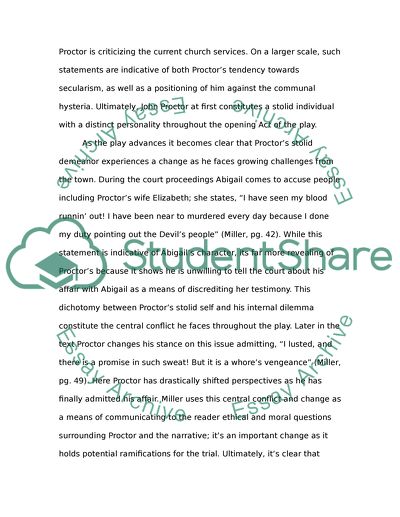Cite this document
(“The Crucible Essay Example | Topics and Well Written Essays - 750 words”, n.d.)
Retrieved de https://studentshare.org/literature/1392643-the-crucible
Retrieved de https://studentshare.org/literature/1392643-the-crucible
(The Crucible Essay Example | Topics and Well Written Essays - 750 Words)
https://studentshare.org/literature/1392643-the-crucible.
https://studentshare.org/literature/1392643-the-crucible.
“The Crucible Essay Example | Topics and Well Written Essays - 750 Words”, n.d. https://studentshare.org/literature/1392643-the-crucible.


